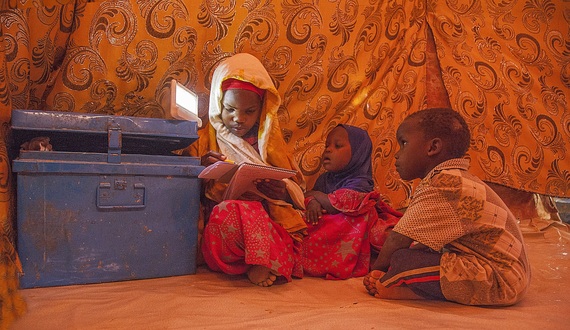When faced with a humanitarian crisis caused by natural disasters, conflicts or other factors, we are often forced to move in search of a safe place. In most cases, migration is the option of last resort for people fleeing troubled areas of residence to a better place. Young people constitute a large portion of the world's population and are among the most vulnerable groups when humanitarian crises occur.
In 2013, about 12.4% of the total population of international migrants was composed of young people between the ages of 15-24 and this number is expected to rise, especially with ongoing humanitarian crises in many parts of the world.
A positive migration experience in this age bracket can set young migrants on a successful path towards achieving a sustainable life for themselves and their families. If their experience is negative however, young migrants can suffer and lose a valuable opportunity for their human development. Their countries of origin and destination will also lose enormous potential contributions to social, economic, and cultural development as well.
More often than not, young migrants who do not fall under the refugee or internally displaced persons (IDP) status are faced with the daunting challenge of coping in their new environment and trying to make ends meet. One of the biggest challenges young people in these situations face is unemployment, and in many circumstances, young people are wrongfully stereotyped as inexperienced or trouble makers, making them vulnerable targets of community problems such as crime and drug abuse.
Lack of proper legal structures and political will to protect young migrants creates a missed opportunity to meaningfully engage young people in developing sustainable solutions and positively contributing to the growth and development of society.
Migration can play a positive role in globalization and cultural integration where knowledge and experiences are shared. This can be achieved by creating inclusive structures that enable positive contributions of young migrants.
As the international community works towards defining a new plan for humanitarian action, emphasis should be placed on the fact that humanitarian needs are a necessity and not a luxury, and therefore should be made easily accessible to those in need, in particular for young migrants.
Young people are generally resourceful, resilient, and adaptable to new environments and able to learn and speak new languages. Many have skills and qualifications and are familiar with new technologies. To overcome risks and be able to contribute to society, they need to be able to realize their rights, such as the right to access education, health care, non-discrimination, including employment, participation in decision-making, and family life.
More recognition needs to be given to the important role young people play in the achievement of sustainable development and their contributions to origin and destination communities. In addition, political will and legal structures should be strengthened to protect young migrants and equip them with the resources to be productive participants in society. While they can fall vulnerable during crises, they have the energy and drive to work in collaboration with communities to respond and deliver humanitarian action at its best.
This post is part of a series produced by The Huffington Post to mark the occasion of two critical conferences at the UN on the Refugee and Migrant crisis: the UN Summit for Refugees and Migrants (Sept. 19th, a UN conference) and the Leaders Summit on Refugees (Sept. 20th, hosted by U.S. Pres. Barack Obama, at the UN). To see all the posts in the series, visit here. To follow the conversation on Twitter, see #UN4RefugeesMigrants.
